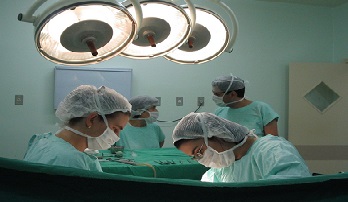In part 2 of this series, Wingspan founder Cristina Castaneda writes about how COVID-19 has changed the way the industry works.

The pandemic has made fundamental changes to the way we live, work, and interact. When offices closed and many of us shifted to working from home, we replaced in-person huddles with Zoom meetings. When before we used to chat with colleagues in the pantry or exchange office gossip at the water cooler, we now do this on instant message via Skype or a quick Zoom call.
As consumers, the pandemic has also changed our habits. In a pre-COVID world, we would stop by the supermarket on the way home from work. But with much of the world on lockdown, we now order our meals online or have groceries delivered via a mobile app, and we pay for purchases with credit and debit cards or digital credit.
Similarly, the way we recruit, screen, and hire healthcare workers has also changed to accommodate travel limitations and comply with health protocols and restrictions.
Here are three changes we’ve seen happen in healthcare recruitment in the Philippines:
1. Shift to online over in-person interviews.
Pre-pandemic, the hiring process involved having the UK employer come to the Philippines to have a deeper understanding of the country and the culture and the background of their hires, as well as take a more active part in interviews. With travel bans making this impossible, interviews and screening have shifted online.
It is commendable how healthcare recruitment has conformed to the new normal by shifting interviews online and adopting to new technologies like Zoom. However, nothing replaces face-to-face interviews which allows one to build a strong connection with applicants over the course of the recruitment process.
Hiring a healthcare worker is not like hiring for any role in which you base your decision on another person’s CV, skills, know-how, and experience. Caring for the sick and vulnerable requires so much from a healthcare worker. Not only is a nurse expected to quickly respond to emergencies, but he or she should also have strong communication skills—to understand and be understood by patients, to be able to clearly articulate instructions or explain procedures—and adapt easily to a fast-paced global workplace. From an employer’s perspective, understanding the nurse’s ethnic, cultural, and economic background is essential as part of the support that goes into the adaptation program in the UK, which aims to help foreign nurses assimilate to a new culture and provide care that comply with UK standards.
As we slowly roll out the vaccination program in the Philippines and life goes back to (almost) normal, we see ourselves going back to pre-pandemic ways of doing in-person interviews and screening.
2. Costs of hiring has increased.
Hiring medical workers in the Philippines has also become more expensive because of additional requirements imposed on overseas employers and recruitment agencies.
Healthcare employers are now expected to shoulder COVID-19 testing and transportation and accommodation costs for workers being processed for deployment, as well as quarantine costs upon arrival at the country of destination. In addition, they are mandated to provide expanded insurance to cover force majeure, acts of God, and health issues on site, and implement alternative work arrangements to ensure safety and avoid job displacement. If there is a need for repatriation, they are also expected to should all related expenses.
3. Demand for healthcare workers has decreased.
Thousands of healthcare workers have died from COVID-19 worldwide, and there continues to be a shortage of healthcare workers globally. However, the deployment of Philippine nurses for overseas jobs has gone down, basing on the number of deployed nurses for the first quarter of 2021.
There are many reasons why clients are not aggressively recruiting from the Philippines. Aside from the increased cost of hiring overseas nurses, employers in the UK are also on recovery and working on reshaping and restructuring their teams after losing employees due to COVID-19 but these could all be temporary because of a healthcare worker shortage of 84,000 FTE exists.
Another reason for the slow demand is that over the years, we’re seeing an increased awareness of the World Health Organization’s global code of practice on the international recruitment of healthcare personnel.
All these changes we’re seeing are part of the ebb and flow of international healthcare recruitment reacting to external and internal factors. We’ve seen how resilient the industry is, and how quickly it has adapted to changes around it. We expect the industry to continue its transformation as it keeps up with the world on recovery from the pandemic.
At Wingspan, the core of what we do focuses on long-term sustainability. We advocate ethical and socially responsible workforce solutions. We aim to promote human capital formation and equitable economic growth in both sending and receiving countries. These are the essence of who we are and embedded in every decision we make.
